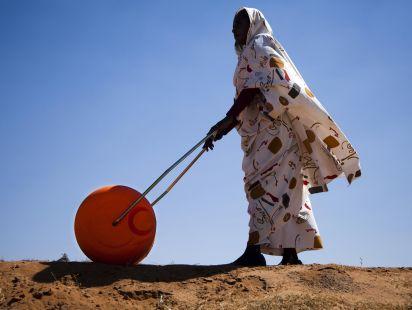Nathalie Ferrière
Chercheuse
, Sciences Po Aix

- Statut
- Maître de conférences
- Domaine(s) de recherche
- Économie du développement
- Thèse
- 2016, Paris School of Economics - École des hautes études en sciences sociales
- Téléchargement
- CV
- Adresse
Maison de l'économie et de la gestion d'Aix
424 chemin du viaduc, CS80429
13097 Aix-en-Provence Cedex 2
Nathalie Ferrière, World Bank Economic Review, 01/2023
Résumé
The impact of US allocation of family planning aid on other donors is studied in order to gain new insights into donor interactions. Within this context, the dominant player in the sector is the United States, whose policies on family planning undergo changes influenced by domestic debates surrounding abortion. By utilizing the Mexico City Policy and considering exposure to this particular policy as an instrumental factor, it has been observed that other donors do not immediately react to policy changes made by the United States, either contemporaneously or within one year. However, a noticeable shift occurs after a two-year period, indicating that these donors eventually align their allocation strategies with those of the United States. Further analysis of this phenomenon reveals varying patterns among different types of donors. While smaller donors exhibit a clear intention to compensate for US policy changes, larger donors display a mix of competitive tendencies and herding behavior, thereby reinforcing the impact of the Mexico City Policy after the two-year time frame.
Mots clés
Family planning, Foreign aid, Mexico City Policy, Donor interaction
Lucas Faure, Dilek Yankaya, Nathalie Ferrière, Camille Noûs, Critique Internationale, Vol. 96, No. 3, pp. 9-21, 07/2022
Résumé
Souvent appréhendés à l’échelle internationale, ces acteurs sont ici étudiés dans leurs relations situées avec l’État, à partir d’une approche empirique et localisée. Parce qu’ils s’engagent dans les politiques de développement, ils deviennent des partenaires tolérés par le pouvoir selon différentes logiques de « décharge ». Tandis que leur périmètre d’action est soigneusement négocié avec les autorités publiques pour des raisons matérielles, statutaires et sécuritaires, la pérennité de leurs actions est due, entre autres, à leur capacité à négocier des combinaisons d’imaginaires politico-religieuses, ce qui ne les empêche pas de participer aux rapports de domination existants.
Nathalie Ferrière, Revue d'Economie du Développement, Vol. 31, No. 2-3, pp. 71-77, 01/2022
Résumé
L'aide internationale au planning familial est dominée par un bailleur de fonds, les USA, dont l'allocation dépend de débats nationaux autour de l'avortement. Ce papier regarde comment les autres donateurs ajustent leur financement en réaction. Les autres donateurs s'emparent alors de ce problème pour exister dans le secteur du planning familial. Sous les mandatures de G.W. Bush et de D. Trump, les pays européens, par l'intermédiaire du parlement européen et des commissaires en charge de l'aide au développement, ont ainsi condamné cette politique et affirmé qu'ils allaient compenser les pertes. Toutefois plusieurs raisons suggèrent que la réalité puisse être différente. La taille des budgets des autres donateurs est relativement faible 1 Ce travail a bénéficié d'une aide de l'Etat opérée par l'Agence Nationale de la Recherche au titre du plan d'investissement France 2030 portant la référence ANR-17-EURE-0020 et de l'Initiative d'Excellence d'Aix-Marseille Université-A* MIDEX. 2 Cela regroupe les activités permettant aux femmes de contrôler le nombre et le calendrier de ses grossesses : conseil, contraception, avortement, procréation médicalement assistée en cas d'infertilité. 3 L'aide est interdite pour les pays pratiquant des stérilisations forcées, mise en avant les méthodes traditionnelles et naturelles de contraception, fin de la recherche sur la pilule abortive…
Mots clés
Aide au développement, Planning familial, Interaction, Coordination, Donnateurs
Nathalie Ferrière, European Journal of Development Research, Vol. 34, pp. 147-171, 01/2022
Résumé
Using a change in EU food aid policy in 1996 as an instrument for EU food aid allocation, I investigate how other donors react to the EU’s food aid allocation. At that time, the EU suddenly divided by two the number of its food aid recipients. On average, other donors imitate the EU at both extensive and intensive margins. Donors’ reactions are heterogeneous: European countries and Canada herd the EU, while the World Food Programme substitutes. The USA do not react. Those results can be explained by competition for relative impact and information effects. For a recipient country who constantly received food aid from the EU before 1996, the number of donors decreases by almost 0.5. This behavior reinforces the problem of orphan and darling recipients.
Nathalie Ferrière, Mondes en Développement, Vol. 195, No. 3, pp. 109-128, 09/2021
Résumé
La part de l'aide humanitaire croît dans l'aide totale. Or les acteurs impliqués restent peu étudiés. Cet article documente la fragmentation de l'aide à un double niveau : celui des donneurs et celui des acteurs de terrains. Le jeu de délégation entre les deux peut réduire les effets négatifs de la fragmentation de l'aide. À partir de trois études de cas, le lien entre fragmentation, délégation et efficacité de l'aide humanitaire est illustré et les coûts et bénéfices potentiels
Mots clés
Delegation, Fragmentation, Implementing agency, Donor, Humanitarian aid, Delegation, Intermédiaires, Donneurs, Fragmentation, Aide humanitaire
Nathalie Ferrière, Camille Noûs
Résumé
I study the impact of US allocation of family planning aid on other donors. Family planning provides representative insights into donor interactions. One donor, the US, dominates the sector but has changing policies on family planning due to domestic debates on abortion. Using the Mexico City Policy and exposure to this policy as an instrument, I find that other donors do not react to US policy changes in the short term, but two years later step in accordingly. This suggests that while some donors clearly intend to compensate for US policy, competition and herding behavior still operate; however, this may be mitigated in the short run.
Mots clés
Mexico City Policy, Donors coordination, Foreign aid, Family planning
